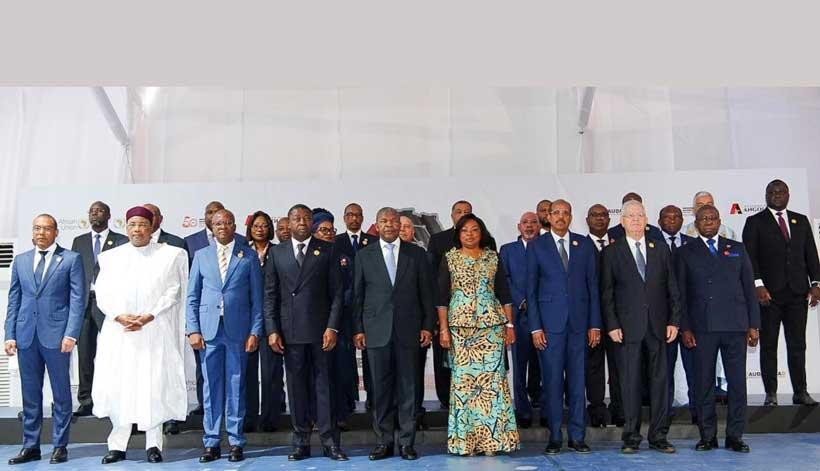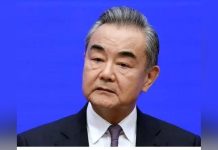By
Kester Kenn Klomegah
Africa-Press – Lesotho. During its 3rd grandiose summit in Luanda that brought together a distinguished panel of leaders, including the ministers of transport from Zimbabwe and Rwanda, the secretary-general of the African Civil Aviation Commission (AFCAC), the director of strategies at Morocco’s Ministry of Transport and Logistics, the CEOs of Ethiopian Airlines and TAAG Angola Airlines, as well as representatives from the World Bank Group and the European Commission (EC), the African Union finally earmarked $30 billion for aviation infrastructure.
In his opening address, João Manuel Gonçalves Lourenço, President of the Republic of Angola and Chairperson of the African Union (AU), stressed that Africa must invest between $130 billion and $170 billion annually to lay the foundation for sustainable growth. “We must move from words to action,” President Lourenço urged. “This summit represents a decisive step toward mobilizing the resources needed to enhance connectivity and integration across our continent.”
The ambitious investment plan strategically aims at modernizing the continent’s aviation infrastructure under the Single African Air Transport Market (SAATM), according to summit reports. Lerato D. Mataboge, African Union Commissioner for Infrastructure and Energy, during the high-level session on Financing and Modernizing African Civil Aviation Infrastructure to Promote Integrated Continental Airspace and Enable Free Movement Under SAATM, emphasized aviation’s pivotal role as both an engine of integration and a cornerstone of Africa’s economic transformation.
“Aviation is not merely a mode of transport,” Mataboge stated, speaking at the session. “It is a strategic engine of continental integration and a core enabler of Agenda 2063 and the AfCFTA. The Single African Air Transport Market will only succeed if we build the modern, safe, and efficient infrastructure that Africa’s growth demands.”
Citing findings from a Continental Aviation Infrastructure Gap Analysis conducted with AFCAC, ICAO, and the World Bank, Mataboge revealed that Africa needs between $25 and $30 billion over the next decade to close critical aviation infrastructure gaps. Passenger traffic is projected to triple from 160 million in 2024 to nearly 500 million by 2050, intensifying the urgency for investment.
Key funding requirements include US$10 billion for airport and aerodrome infrastructure and $8 billion for modernizing communication, navigation, and meteorological systems. The AU’s strategy aims to mobilize $10 billion in catalytic public finance to attract an additional $20 billion in private and institutional investment. Through partnerships with Development Finance Institutions (DFIs) and AUDA-NEPAD, the AU is aligning investment priorities with SAATM and the Programme for Infrastructure Development in Africa (PIDA).
The modernization plan integrates cutting-edge technologies such as Airport Collaborative Decision-Making (A-CDM) and System-Wide Information Management (SWIM) to enable seamless continental airspace. It also incorporates renewable energy solutions at airports to attract green financing and advance sustainability goals.
“As we modernize African skies, we are doing so sustainably,” Mataboge added. “Every project we prepare is designed to meet global green standards, reduce fuel consumption and CO₂ emissions, and make African aviation an attractive asset class for the world’s growing pool of climate-focused capital.”
Mataboge reaffirmed the AU’s commitment to ensuring that a modern, efficient, and sustainable aviation network drives Africa’s economic integration, connectivity, and global competitiveness. The AU’s officials reaffirmed their focus on Africa’s most strategic priorities, including building aviation infrastructure, digital data systems, and data interoperability. The discussion underscored the importance of collaborative efforts in building a better aviation sector across Africa.
Deals and Dollars: Concrete Commitments
The summit moved beyond dialogue to secure tangible commitments, marked by the signing of three key Memoranda of Understanding (MOUs):
– A partnership between the African Social Security Association and AUDA-NEPAD to channel African pension funds into continental infrastructure.
– An MOU with Qatar Airways establishing a $500 million endowment for renewable energy and climate-aligned industrialization.
– The establishment of the Angola Export and Trade Facility to promote regional cooperation and trade.
Ms. Nardos Bekele-Thomas, CEO of AUDA-NEPAD, reported significant progress since the previous summit in Dakar, Senegal. She announced that the AU, alongside African financial institutions, has already raised $1.5 billion to execute high-impact cross-border projects.
“The lesson from Dakar is clear: we can no longer treat financing as a fragmented market of scattered deals. We must transform it into a unified strategy,” Bekele-Thomas stated. She detailed new financial instruments, including the Alliance for Green Infrastructure in Africa’s Project Development Fund, which has achieved a first close of $118 million and is managed by Africa50.
In his contribution, African Union Commission Chairperson Mahmoud Ali Youssouf emphasized that Africa is entering a new phase of self-determination, one in which the continent must take ownership of financing, planning, and implementing its own development. He underscored that infrastructure investment is not merely technical but deeply political and strategic, vital to Africa’s economic sovereignty, competitiveness, and unity. Highlighting progress made under the PIDA framework, he called for an African-driven ecosystem for development financing through domestic resource mobilization, stronger private sector participation, and greater access to climate funds.
Echoing the urgency of the Chairperson of the African Union Commission, framed infrastructure investment as a deeply political and strategic imperative for Africa’s economic sovereignty. “We are shifting from a logic of assistance to a logic of alliance, where partners align their engagement with priorities defined by Africa itself,” he declared. He concluded with a powerful vision: “What we are building here are not merely roads and bridges. We are building an Africa that is connected, confident, and sovereign.”
There were special sessions designed to facilitate in-depth due diligence and accelerate projects toward financial close. The summit for Africa’s infrastructure development stands as a definitive moment, signaling Africa’s unified resolve to finance its own destiny and build the interconnected, prosperous future its people deserve.
moderndiplomacy
For More News And Analysis About Lesotho Follow Africa-Press






